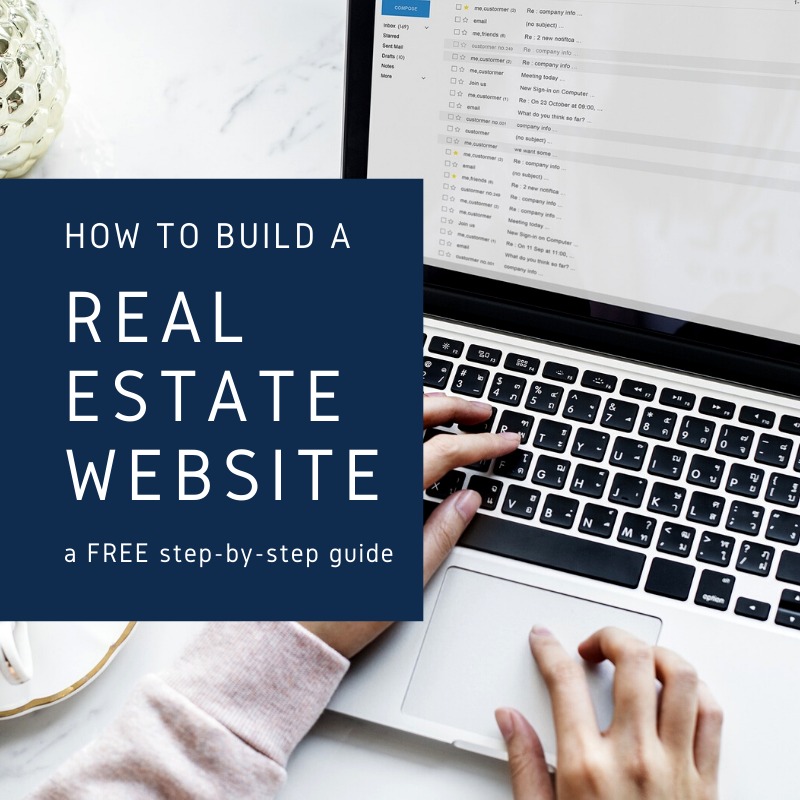Real estate is a competitive business, and real estate agents who are aggressively growing their businesses are always trying to improve their website and internet presence. Unfortunately, too many are spending time, money, and effort in activities that aren’t that effective.
Here are 5 tips critical real estate website marketing tips for creating or improving your site to generate more leads and closings.
Tip #1: Prepare for and create effective content.
Don’t just jump into building or designing a website. Consider what you’re going to place on the site and why. While some basic brand-type promotion is OK, the content to be planned carefully is the content visitors will want and value.
One idea is to go back through all of your emails and copy out the questions that people like your potential clients ask previously. Each question is a topic for content, and the next tip will explain how to incorporate the content in the site for maximum effect. Take time to think about every question you’ve been asked by prospects and clients over time. Each one of those is also a topic for content creation that people are searching for online.
The goal is to create conversion optimized content that prospects searching the Web will be seeking, and to package it to address each specific question they ask or information item they seek. Consider those questions as titles for information content articles. As recent studies show that as many as half of all searches are now done with voice on smartphones, those searches are often phrased as questions.
Tip #2: Create content in focused key phrase landing page format.
If you’ve created content with titles phrased as questions, you should gain some SEO (Search Engine Optimization) value from it. An example would be “Where are homes in [your city] under $200,000?” A content page titled that way and setting out neighborhoods, perhaps even mapping them, should get great search engine results pages (SERPs) positioning.
Suppose the search was something like, “What happens at a real estate closing?” Google is smart at knowing where the person is that’s asking the question, and often places higher value on content that’s locally oriented. For this search, it would help to title the page “What happens at a [your city] real estate closing?”
Tip #3: Develop call-to-action materials.
Once the landing pages are created with content focused and highly relevant to what searchers are seeking, you can then prepare call-to-action offerings that are designed to get the prospect to give up their contact information in exchange for building a relationship that leads to a closing.
These offerings should be somewhat related to the page content and offer some added value to the site visitor or something free and valuable they get. Examples include:
- Free home sale price or rent price analysis
- specific neighborhood information pages
- home price range mapping or charts
- sample closing documents with all private info redacted
- any specific closing or support document properly redacted, such as
-
- title insurance binder
- abstract of title
- purchase contract, properly copyright protected
- listing contract, properly copyright protected
- sample home inspection report
- Example of repair negotiations documents
- sample closing costs for both buyer and seller
- any other regularly used document or process that can be attached to an email in response to a call-to-action form on the site
Tip #4: Place call-to-action forms and offers strategically.
Try to place the offers high on the page, called “above the fold” in print newspapers. For the Web, make sure they’re high enough that the visitor doesn’t need to scroll before seeing them. Then place the offer most relevant to the content next to it or as a text link in the content.
There can be a short form in a sidebar with the call-to-action, or it can be a text link or button strategically placed in the content that takes the visitor to the form. An example on the page about closings may be text like “One of the first things a buyer gets from the title company before closing is a title binder. “Get a sample title binder with notes and explanations of items here.”
Tip #5: Aggressively promote your landing pages in all marketing materials.
The last of our real estate website marketing tips is not to rely on SEO alone. Drive visitors to the website with a variety of strategies. Now that the site has the content and effective calls-to-action, every piece of marketing material out there, from business cards to social media and homes magazine ads, should direct the ad viewer to relevant site content.
On this topic, think about the ad viewer and that they must type in the URL (domain address) for the content, so keep those as short as possible and relevant. An example for the closing page again may be “https://yoursite.com/closinginfo/.”
Follow these five simple real estate website marketing tips, and the resulting website will deliver suspects who become prospects when they respond to a call-to-action and you will have more potential clients in your sales pipeline!








